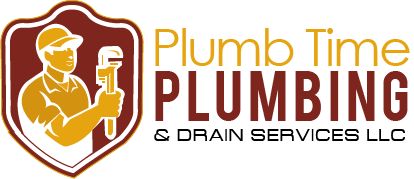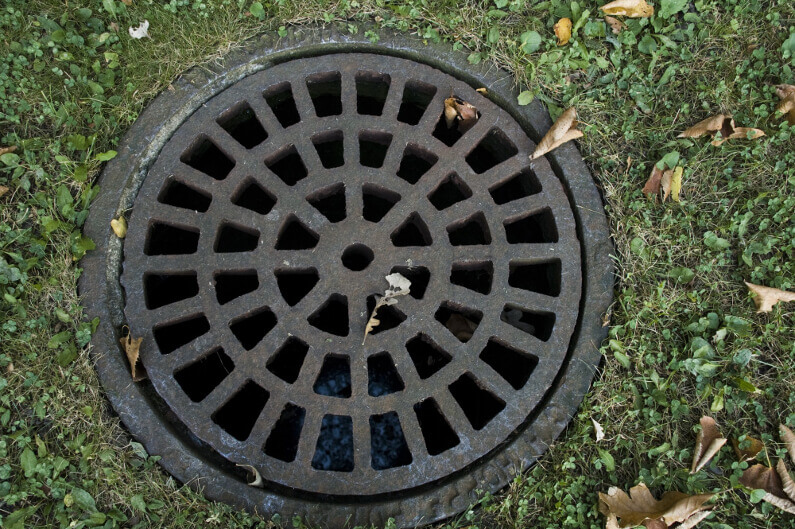When you bought your home, you scheduled an inspection (at least we hope you did). Your home inspector looked at the electrical, the mechanical, and the plumbing system.
Your plumbing system got the once-over to make sure the sinks, tubs, and toilets worked and that there weren’t any visible leaks. Unless you bought your home in the middle of winter, the inspector also checked the outside spigots.
What your home inspection didn’t include was a sewer line inspection.
Now, you’re dealing with messy plumbing backups and an unpleasant sewer odor in your home. Time for a sewer camera inspection!
If you’ve never had one, you’ll want to know what to expect. Take a minute and read today’s post. We’re talking about what to expect when you schedule a sewer inspection. If you own a business and you’re dealing with plumbing problems, this post is for you too!
Do You Need a Sewer Inspection?
While the answer might seem obvious, not all homes and businesses connect to the city sewer system.
In rural areas and many unincorporated areas, wastewater empties into a septic system, not a sewer. If you have a septic tank, this article may interest you, but you won’t need to call a plumber. At least not for a sewer line inspection.
If you haven’t yet closed on your home, yes, you need a sewer inspection, especially if you’re purchasing an older home (20 years plus) or moving into an older business location.
What does age have to do with sewers? The older the system, the more likely it’s affected by tree root invasion, and/or old Orangeburg pipes.
By the way, even owners of newly built homes experience sewer line issues. Ground settling or a sheared sewer line are two things a plumbing professional can detect with an inspection.
The more obvious reasons to schedule a sewer inspection include:
- Stubborn Clogs
- Collapsed Plumbing Pipe
- Toy in the Toilet
Don’t laugh—some kids just can’t resist flushing toys down the toilet. Plumbers find all kinds of interesting items in plumbing systems. An inspection helps them locate not only clogs but the objects causing them.
Now that you’re convinced you need an inspection, let’s look at the equipment your plumber will use on inspection day.
Not Your Ordinary Camera
The cameras plumbers use for sewer line inspections look nothing like the digital camera you use to take family photos.
These cameras sit on the tip of a flexible pole or rod. The plumbing tech sends the rod through the plumbing pipe and as it travels, the camera sends a video signal back to the tech’s TV-screen-like monitor.
The camera captures footage of the entire length of the pipe. Most cameras come equipped with lights, which show cracks, clogs, or problems with the structure of the plumbing pipe.
Using advanced technology, the cameras also use an internal radio transmitter that records the depth of the pipe and the exact location of obstructions or defects. The plumber stores the footage on a disk, which they’ll for their reference if they need to make repairs. If you’re filing a claim on your homeowner’s insurance, your provider may request a copy of the footage for their records.
Inspecting Your Sewer Line
Keep in mind, your sewer line lies roughly 5-6 feet under your home or business. How does a plumber get a video camera into the pipes?
The first thing your plumber will do when they arrive for the inspection is to find a point of access. Most of the time, they use a cleanout. If they can’t find an accessible cleanout, they’ll need to figure out an alternative.
If there’s an obstruction in the sewer line, it will prevent the camera from getting clear images. That means the plumber must remove any clogs or objects before the recording session begins.
Once they’re assured they don’t have anything blocking the view, they’ll insert the camera into the pipe at the cleanout. They push the flexible rod to the main line for the sewer. Then, they thoroughly inspect the entire plumbing line.
What Can a Sewer Camera Find?
If you’re dealing with constant plumbing backups, the first thing the plumber looks for is large clogs. The camera can also find whatever foreign object someone flushed down a toilet. A common obstruction found in sewer lines is tree roots and the camera gets great footage of those!
Broken sewer lines also show up on sewer cameras. The camera is critical for the plumbing team in dealing with broken lines because the camera pinpoints the location of the break.
What a sewer camera can’t do is detect or locate a leak. That’s because water leaks out, not in through a hole or crack. The camera only records activity in the pipe as it happens.
If your plumbing professional suspects a leak, they may still recommend a sewer inspection as a secondary method of helping detect and repair pipe leaks.
Sewer Line Inspection Cost
Now, for the question of the day! How much does a sewer line inspection cost?
As with any repair service requiring help from a contractor, your zip code plays a huge role in determining cost. Other factors come into play, including the professional you call, and the equipment they use. Since most plumbers charge by the hour, the length of time it takes for the inspection also figures into the final cost.
The average cost for a sewer camera inspection runs between $250-$500. In some areas of the country, you could pay up to $800. If you’ve scheduled a routine plumbing inspection, your plumber may charge the camera inspection as an add-on, which could save you money.
Need to Schedule a Sewer Camera Inspection?
When you’re dealing with a serious plumbing problem, it can bring everything at home, or your business location to a halt. A sewer camera inspection can help get to the bottom of the problem quickly so that you can get back to your normal activities.
Serious plumbing problems need the expertise of a Master Plumber. To schedule a sewer inspection or for assistance with any other plumbing issues, contact our team today. You can count on our 27+ years of experience in the plumbing business!











I have hired 3 plumbers (2) dug under my foundation & the first one Replaced Thé cast iron And said it was fixed. Water would stand in the Cast iron pipe in the middle part of the house and with in a year it was stopped up again with the new pipe. Plumber #2 dug under Thé house to discover the first plumber didn’t and brace the Pipe he Replaced. Within a few months, it was stopped up again. Plumber #3 wouldn’t dig instead broke through the foundation in 2 different rooms & cut out the new pipe & replaced it & had subcontractors fill the hole & were about to fill with cement when we insisted on seeing through the pipe through the camera to discover water was still collecting in the same area. When they force water through it comes out the other side. My husband is going to have a heart attack. Please advise. All 3 ran camera through; please send me some suggestions.
Need someone in area Cuthbert ga